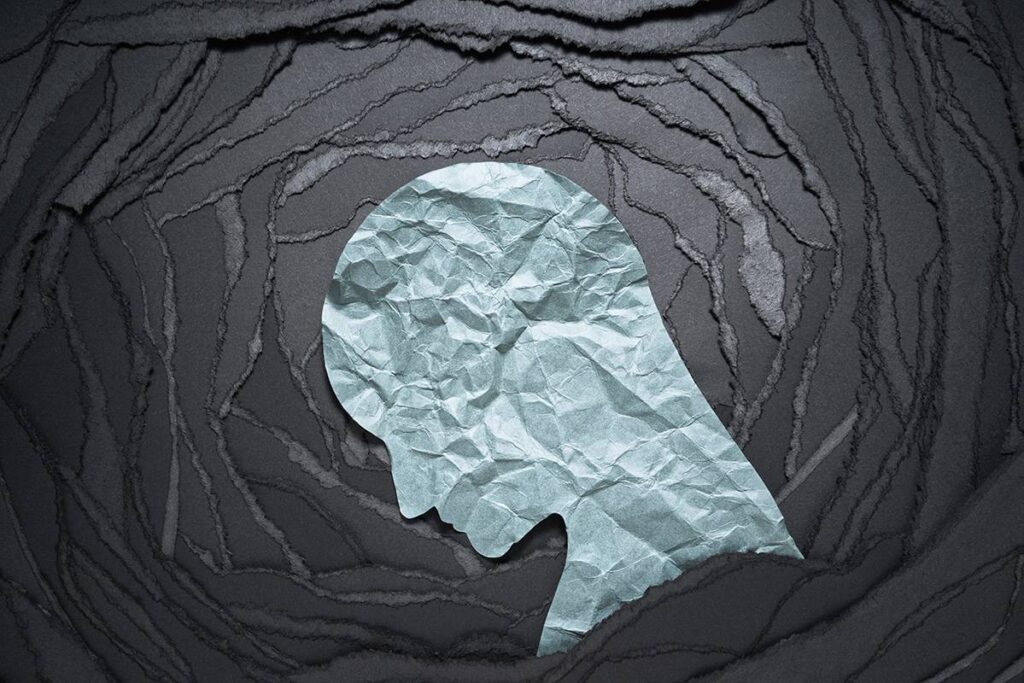Occasionally experiencing stress, tension, or anxiety is a normal part of life. When anxiety starts to interfere with everyday life, it can be a symptom of an anxiety disorder. Those with anxiety disorders develop intense, persistent, and excessive fear and worry that is disproportionate to the situation. Panic attacks are one of the most challenging symptoms of an anxiety disorder. A panic attack can manifest as repeated episodes of intense anxiety or even terror that reach a crescendo and can often leave a person worried that there is something physically wrong with them. Though panic attacks only last a few minutes, they can create a vicious cycle as people worry about having a panic attack, and worry can trigger panic attacks.
Symptoms of anxiety can start in childhood, adolescence, or even suddenly for adults. Sometimes a precipitating trigger can be identified, but other times the onslaught of new anxiety can seem to appear for no reason.
Anxiety disorders include:
- Generalized anxiety disorder
- Social anxiety disorder (social phobia)
- Separation anxiety disorder
- Specific phobias
It is possible to have more than one kind of anxiety disorder, and the disorders can overlap. There are medical conditions that can precipitate the diagnosis of an anxiety disorder. These include:
- Heart disease—heart disease and anxiety, can have many symptoms that overlap, such as chest pain or tightness, shortness of breath, fatigue, and nausea. It is critical to see a medical professional the first time you experience these symptoms to rule out a serious medical condition.
- Hyperthyroidism is caused by an overactive thyroid that releases too much thyroxine hormone. Symptoms of hyperthyroidism include a rapid or irregular heartbeat, sweating, increased metabolism, and nervousness.
- Chronic pain, irritable bowel syndrome and anemia also have a relationship with anxiety.
Symptoms
- Feelings of fear or terror
- Racing or irregular heartbeat
- A sense of dread or impending doom
- Difficulty concentrating
- Fatigue
- Trembling or shaking
- Shortness of breath
- Stomach problems
Risk factors
There are known risk factors for developing an anxiety disorder, but it is important to understand that you can develop an anxiety disorder with no known risk factors. Experiencing any of the following increase your chances of developing an anxiety disorder:
- Trauma—those who have experienced abuse or trauma have a significantly higher risk of developing an anxiety disorder.
- Stress build-up—this can be one major event, such as losing a job or a death in the family. It can also result from a series of smaller stresses such as family issues, financial problems, or work stress.
- Stress caused by illness—those who have a chronic illness, or face a serious illness or injury are at risk of developing an anxiety disorder.
- A family history of stress disorders—anxiety disorders can run in families. It is not understood if this is a result of an inherited predisposition or if it is environmental, but your risks are increased if you have a blood relative with an anxiety disorder.
- Other mental health issues—an anxiety disorder is often a comorbidity of mental health problems like depression.
- Substance abuse—misusing drugs or alcohol can contribute to developing anxiety. Those with an anxiety disorder are at increased risk of misusing substances in an attempt to self-medicate their anxiety.
One of the primary causes of the development of an anxiety disorder is emotional abandonment. The loss of emotional support caused by death, illness, parental neglect, or divorce can create a cycle of shame, fear, and self-blame. Fear of rejection can cause feelings of inferiority that manifest as anxiety.
Emotional abandonment experienced during childhood can have a profound impact. The child grows up with anxiety about suffering feelings of abandonment in the future. They can avoid trusting others as a coping mechanism, leaving them without the support system we all depend on. The same cycle can be found in abusive relationships, where walking on eggshells creates constant low-level anxiety that can eventually manifest in an anxiety disorder.
Treatment
Early intervention yields the best results in managing anxiety disorders. The longer a person continues in the cycle of anxiety, the harder it is to change established negative thinking patterns. Cognitive behavior therapy can play a crucial role in re-wiring the thought process while establishing healthy coping mechanisms.



